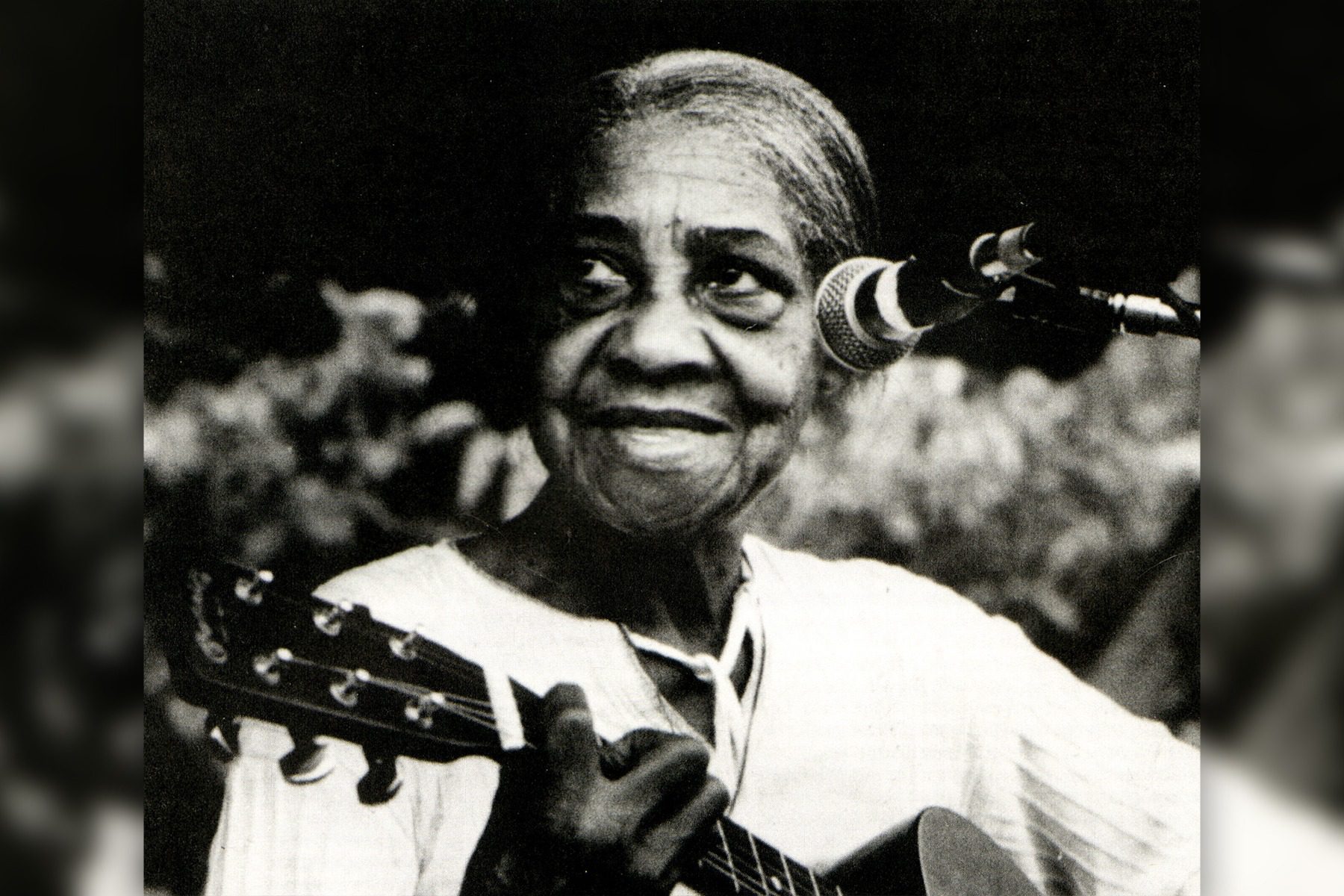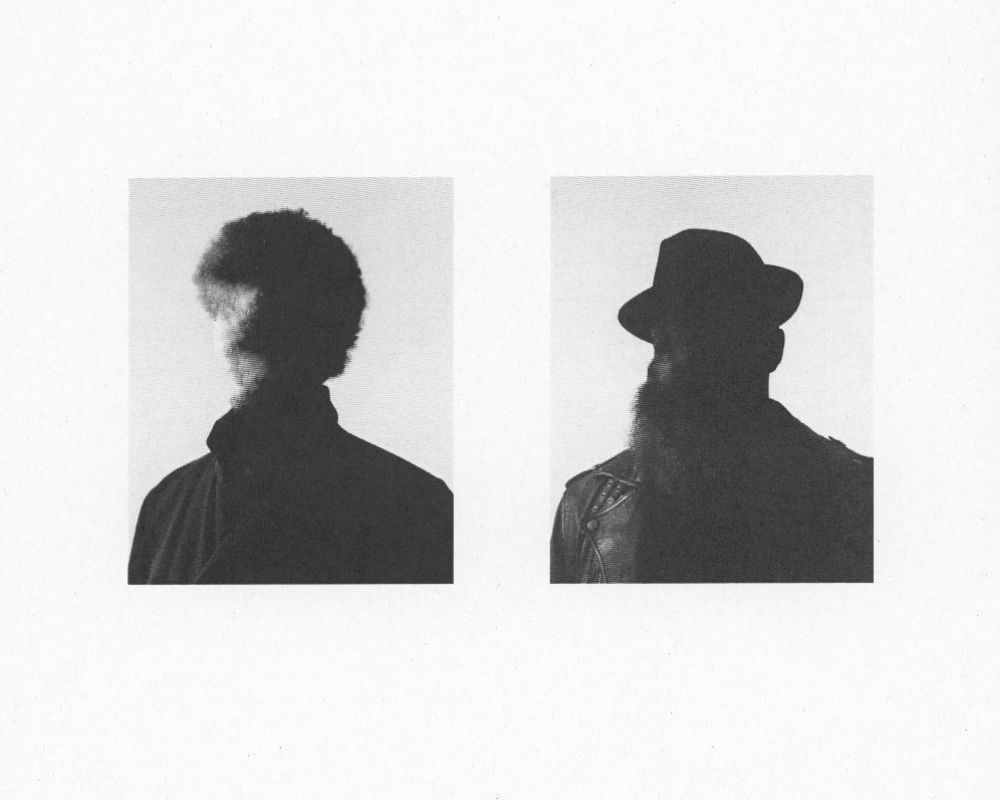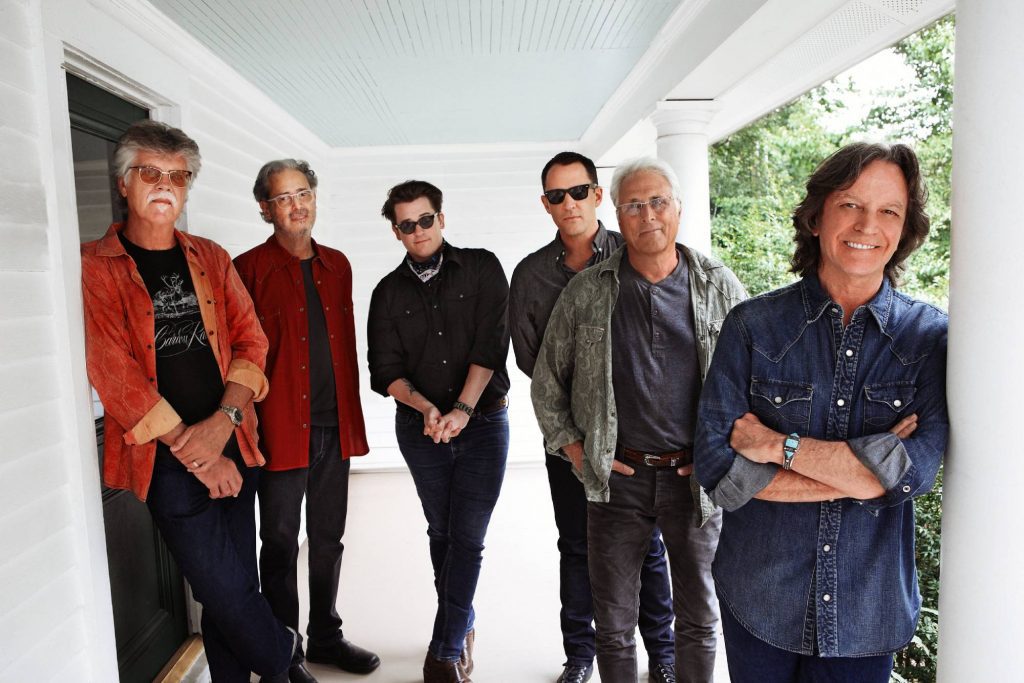
Rhiannon Giddens on Elizabeth Cotten: ‘Her Music Is in the DNA of So Much’
The music of Elizabeth “Libba” Cotten has never stopped shaping folk, roots, and rock music. More than a half-century after the singer-songwriter’s originals like “Freight Train” and “Shake Sugaree” influenced the biggest names of the Sixties folk revival — including the Seeger family, Bob Dylan, and, later, the Grateful Dead — Cotten’s music is still making its mark upon younger generations of musicians, from Gary Clark Jr. to Laura Veirs to Yasmin Williams. “How she played, I can’t figure it out,” Williams, a 25 year-old guitar virtuoso said last year of Cotten’s distinct left-hand fingerstyle guitar.
Last week, it was announced that Cotten, born in 1893, will be inducted into the Rock and Roll Hall of Fame as an early influence. Cotten taught herself guitar and performed for herself and for family for decades, only to be “discovered” after years of working as a domestic laborer for the Seeger family. And yet, her story, and the legacy she’s left in the 35 years since her passing in 1987, is rarely acknowledged, and when it is, frequently misunderstood. “So much of the writing about Elizabeth Cotten is marred by misogynoir,” writes musician and folk music historian Tatiana Hargreaves, who explains that popular narratives about the singer “underplay Cotten’s musical and technical skill, instead describing her as gentle and humble. [They] also focus on her childhood and then skip to her musical career, avoiding discussion of the first half of her life doing housework for white families.”
blogherads.adq.push(function () {
blogherads
.defineSlot( ‘medrec’, ‘gpt-dsk-tab-article-inbody1-uid0’ )
.setTargeting( ‘pos’, [“mid-article”,”mid”,”in-article1″,”mid-article1″] )
.setSubAdUnitPath(“music//article//inbody1”)
.addSize([[300,250],[620,350],[2,2],[3,3],[2,4],[4,2],[640,250]])
;
});
One artist who’s always had a keen understanding of Cotten’s proper place in the pantheon of American music is Rhiannon Giddens, who began learning her fellow North Carolinian’s repertoire as a young adult. Giddens later recorded a version of Cotten’s song “Shake Sugaree” on her very first solo LP, 2015’s Tomorrow Is My Turn.
Here, Giddens explains the gargantuan significance of Elizabeth Cotten’s legacy, and what Libba’s story represents.
I started listening to Elizabeth Cotten’s music early on in my twenties, when I started investigating not only [traditional] music but also the African history of this music. Her song “Freight Train” was such an important song, and I was really interested in how she played guitar, too. I’m left-handed, but I play everything right-handed, and I didn’t know you could swap the guitar around like she did. I always thought that was so cool.
Her music sits at a crossroads of a lot. She is a woman, she is Black, she is playing a music that doesn’t really have an immediate fit: It’s not bluegrass, it’s not Appalachia old-time. Her particular style of Piedmont-style guitar picking is representative of the whole region in so many ways, and even that itself wasn’t something that was well-known. So for me, Elizabeth Cotten represents the untold and countless musicians who were at these crossroads who were, actually, really, a huge part of the fabric of American music. She’s coming straight out of that incredible cross-cultural soup that can be hard to pin down into anything we call a genre today. That’s one of the things that comes over me when I think about her.
Also, the idea of how women hold traditions in a certain way, because so often they are domestic, they are in the house, they’re not out there performing. There were women performers up until a certain point, but as soon as a lot of money gets made, then the men start to take over. In her generation, there were so many women who were holding music in the house and whose children would then go out and be performers. There are so many of those stories. The ones that are exceptions, like hers, they prove the rule. Thinking about her working in the Seeger household, there’s just a lot there. And then the fact that it’s her great-granddaughter [Brenda Joyce Evans] singing [on the most well-known recording of “Shake Sugaree”], there’s the multi-generational aspect of it. She kind of hits every box.
Then there’s this other box: the creator. There are artists in the Black musical community, because of how music is transmitted and commercialized in this country, who [never received credit for their work]. It’s a particularly intense subject, when you talk about the legion of nameless Black performers or Black musicians — just like almost her — who create this music and then somebody else picks it up and gets the copyright on it, and that’s it.
blogherads.adq.push(function () {
blogherads
.defineSlot( ‘medrec’, ‘gpt-dsk-tab-article-inbody2-uid1’ )
.setTargeting( ‘pos’, [“mid-article2″,”mid”,”in-article2″,”mid-article”] )
.setSubAdUnitPath(“music//article//inbody2”)
.addSize([[300,250],[300,251],[620,350],[2,4],[4,2],[3,3],[2,2]])
.setLazyLoadMultiplier(2)
;
});
The woman who actually had a direct hand in creating rock & roll music, right, Sister Rosetta Tharpe, how long did it take for her to be inducted? [Ed. note: Tharpe was inducted into the Rock and Roll Hall of Fame in 2018.] It’s the same shit. When you look at somebody like Sister Rosetta in their heyday, and you realize how many people knew about her, but then, who’s writing that story? This is always the question when somebody is gone: Who has control over the narrative? It’s why I don’t give two tosses for the Rock and Roll Hall of Fame. What does it even mean? But I’m grateful Elizabeth Cotten is getting recognition. I’m grateful Sister Rosetta Tharpe is getting recognition, just to put their names in people’s mouths, that’s great. I’m like, “Fantastic.” It’s only been a recent thing where people have been looking at the actual story of these genres and saying, “But who was actually there?” It’s great to see that change, but it is weird.
When I was recording Tomorrow Is My Turn, I knew I wanted to do a Libba Cotten song, but I didn’t want to do “Freight Train,” because it was just too-done. I fell in love with “Shake Sugaree” and the way her great-granddaughter performs it. There are so many layers to that song. The idea of Libba playing the song in her old age and her great-granddaughter singing, that generational passing, it’s just a lot. It’s almost hard to talk about. So my version of the song is filtered through her great-granddaughter’s performance, so there’s this extra layer of meaning.
That’s why I do what I do, I suppose. So many people love the version that we did, I still hear about, and I don’t really hear about other material on that record, but “Shake Sugaree” keeps coming back. There’s something about that song.
Like women often are, Libba’s music is in the DNA of so much. What she did influenced a lot of people in a lot of ways. You think about someone like Maybelle Carter and her distinct style, where people play that and you’ll say, “Oh, that’s Maybelle Carter style.” With Libba, it’s less obvious than that. As often, with these Black pioneers, you think about the people who influenced and inspired that first commercial row of bluegrass and country stars. I think Libba exists in that space, too, where it’s just so many people, especially from the folk revival movement, and beyond: Elizabeth Cotten is just there. Everybody knows “Freight Train.” Everybody knows what that sounds like. If you take her out [of the equation], what do you have? I don’t know. I wouldn’t say I hear people today and I’m like, “Oh, that sounds just like Libba Cotten” — but her influence is on a movement, and it’s on the way music sounds, because Libba’s sound was so of her place, and so of who she was. When people hear that, they can’t help but absorb it into what they do.




